On the afternoon of March 19, 2025, the 127th Biomed-X Seminar of Zhejiang University-University of Edinburgh Institute was successfully held at Room A203, ZJE Building. Invited by Dr. Liu Wanlu and Dr. Chen Di, Dónal O'Carroll, a Fellow of the Royal Society of Edinburgh from the University of Edinburgh, and Professor Ramesh Pillai from the University of Geneva gave seminars titled “Safeguarding germline immortality” and “RNA modifications in gene regulation,” respectively.
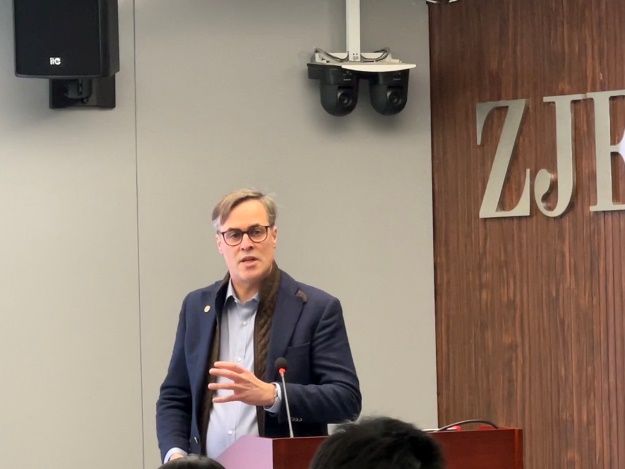
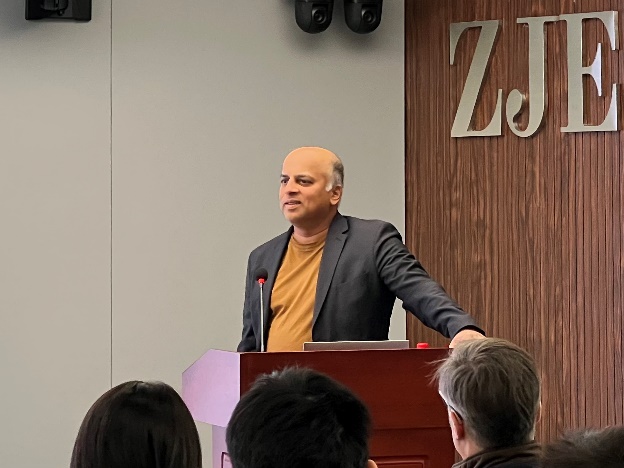
Professor Dónal O'Carroll introduced his laboratory's pioneering work on the piRNA pathway, including the mechanism of transposon silencing mediated by the mammalian piRNA pathway. The piRNA pathway is a unique small RNA pathway that specifically silences transposons in the germline and is indispensable for germ cell formation and species propagation. Professor O'Carroll's laboratory first reported a “two-step validation” model for the precise mediation of de novo DNA methylation silencing of transposons by the piRNA pathway in the mammalian germline. He also introduced a collaborative project with Dr. Liu Wanlu's research group, focusing on the evolutionary origin of the mammalian piRNA pathway. Using salamanders as a model organism, he first reported that the mammalian piRNA pathway may have originated from a tetrapod ancestor.
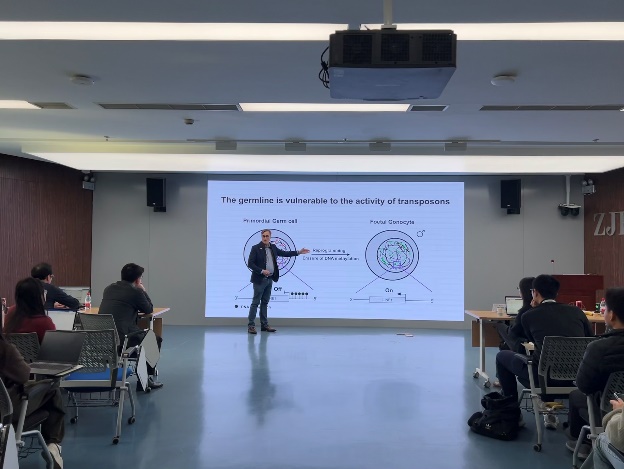
Professor Ramesh Pillai introduced his laboratory's cutting-edge work on RNA modifications. Pillai’s lab was the first to discover a unique m6A modification within mRNA introns that regulates the alternative splicing of lariat mRNAs and demonstrated that this process is highly correlated with nutrition and metabolism. Professor Pillai also highlighted his lab's pioneering work on mRNA 5' cap modifications, reporting on the molecular mechanisms of atypical mRNA 5' cap modifications, such as Ap4A, which trigger the interferon pathway for innate immunity.
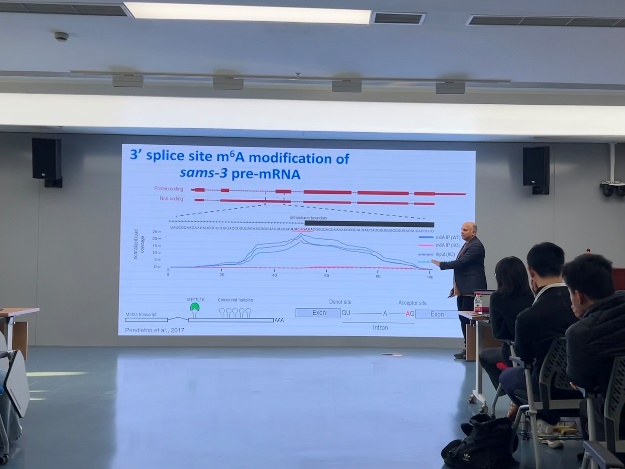
During the event, faculty and students actively engaged in discussions, demonstrating their open-minded approach to academic exploration and critical thinking about research questions. Two Professors patiently and thoroughly answered every question, deepening the understanding and insights of participants in this field.
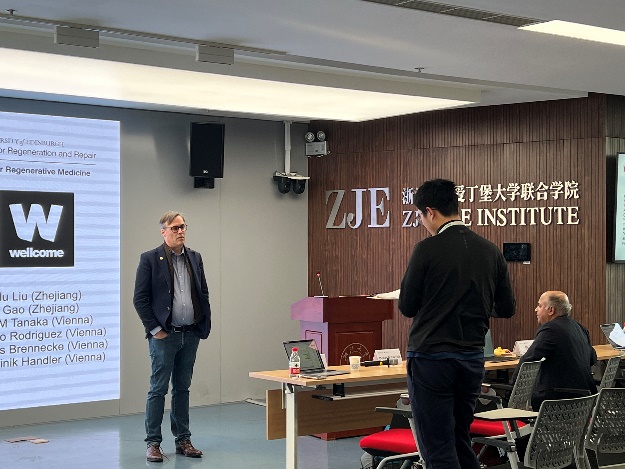
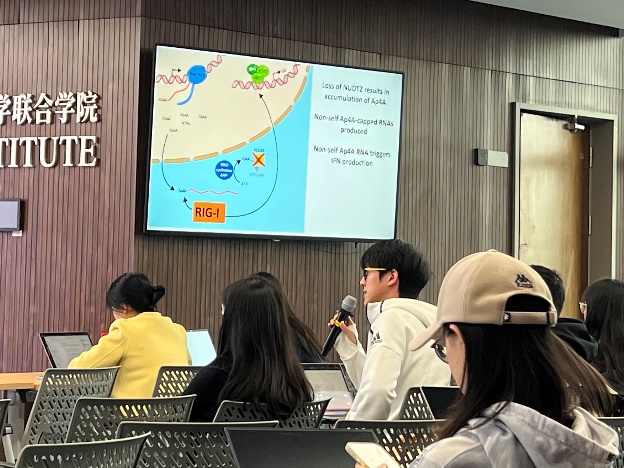
As the 127th session of the Biomed-X Seminar series, this report underscores the institute's commitment to fostering high-level academic exchanges through its academic brand building efforts. The institute will continue to provide a platform for faculty and students to engage in cutting-edge scientific discussions.







